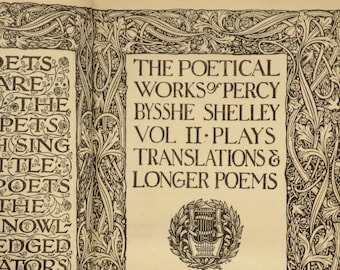


Shelley's poetry sometimes had only an underground readership during his day, but his poetic achievements are widely recognized today, and his political and social thought had an impact on the Chartist and other movements in England, and reach down to the present day. Though Shelley's poetry and prose output remained steady throughout his life, most publishers and journals declined to publish his work for fear of being arrested for either blasphemy or sedition. Shelley's close circle of friends included some of the most important progressive thinkers of the day, including his father-in-law, the philosopher William Godwin, and Leigh Hunt. His other major works include a groundbreaking verse drama The Cenci (1819) and long, visionary, philosophical poems such as Queen Mab (later reworked as The Daemon of the World), Alastor, The Revolt of Islam, Adonaïs, Prometheus Unbound (1820)-widely considered to be his masterpiece-Hellas: A Lyrical Drama (1821), and his final, unfinished work, The Triumph of Life (1822). Shelley is perhaps best known for classic poems such as "Ozymandias", "Ode to the West Wind", "To a Skylark", "Music, When Soft Voices Die", "The Cloud", and "The Masque of Anarchy". Shelley was a key member of a close circle of visionary poets and writers that included Lord Byron, John Keats, Leigh Hunt, Thomas Love Peacock, and his own second wife, Mary Shelley, the author of Frankenstein. A radical in his poetry as well as in his political and social views, Shelley did not see fame during his lifetime, but recognition of his achievements in poetry grew steadily following his death. Percy Bysshe Shelley ( (listen) BISH 4 August 1792 – 8 July 1822) was one of the major English Romantic poets, who is regarded by some as among the finest lyric and philosophical poets in the English language, and one of the most influential.


 0 kommentar(er)
0 kommentar(er)
